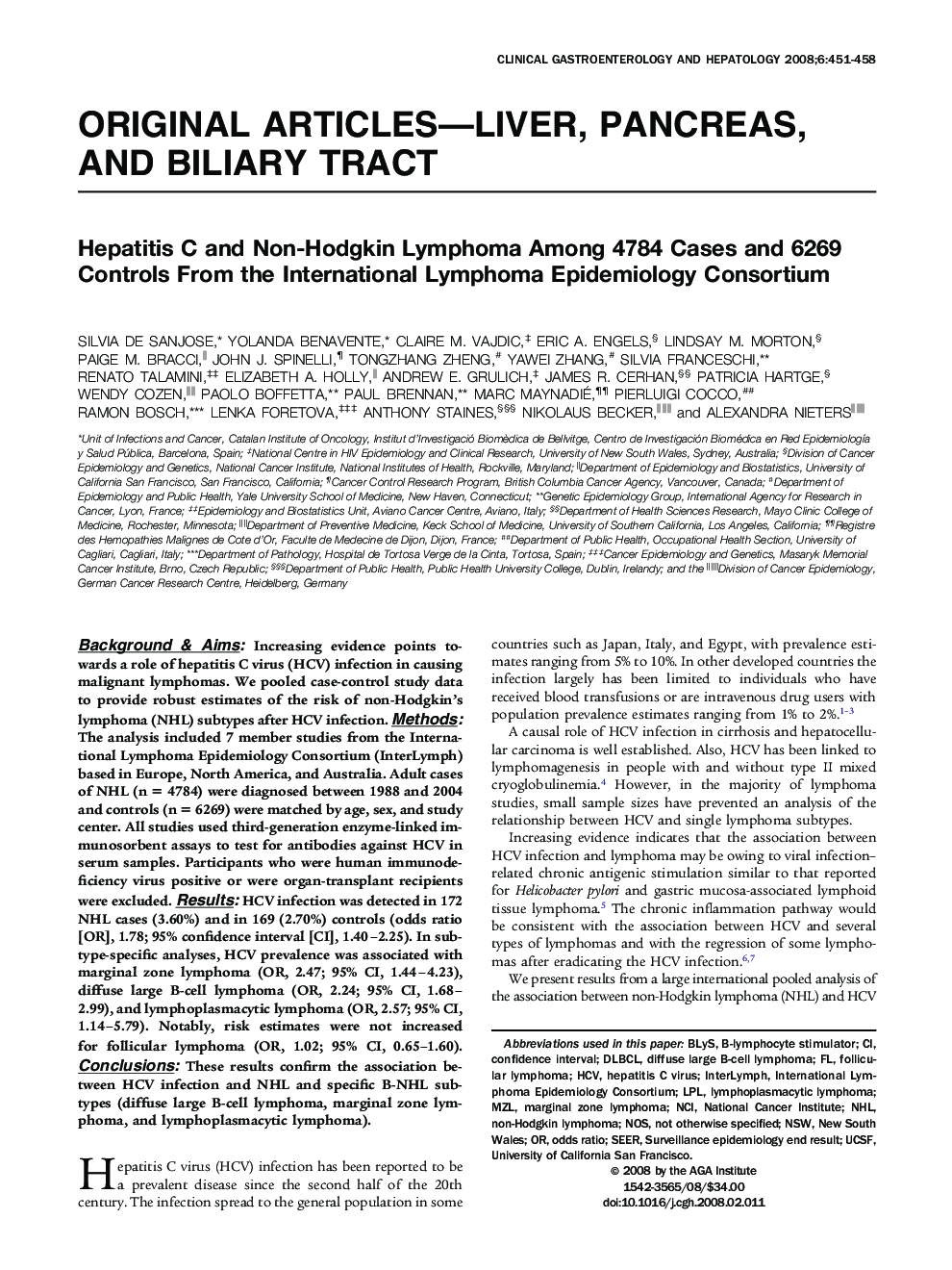| Article ID | Journal | Published Year | Pages | File Type |
|---|---|---|---|---|
| 3284310 | Clinical Gastroenterology and Hepatology | 2008 | 8 Pages |
Abstract
Background & Aims: Increasing evidence points towards a role of hepatitis C virus (HCV) infection in causing malignant lymphomas. We pooled case-control study data to provide robust estimates of the risk of non-Hodgkin's lymphoma (NHL) subtypes after HCV infection. Methods: The analysis included 7 member studies from the International Lymphoma Epidemiology Consortium (InterLymph) based in Europe, North America, and Australia. Adult cases of NHL (n = 4784) were diagnosed between 1988 and 2004 and controls (n = 6269) were matched by age, sex, and study center. All studies used third-generation enzyme-linked immunosorbent assays to test for antibodies against HCV in serum samples. Participants who were human immunodeficiency virus positive or were organ-transplant recipients were excluded. Results: HCV infection was detected in 172 NHL cases (3.60%) and in 169 (2.70%) controls (odds ratio [OR], 1.78; 95% confidence interval [CI], 1.40-2.25). In subtype-specific analyses, HCV prevalence was associated with marginal zone lymphoma (OR, 2.47; 95% CI, 1.44-4.23), diffuse large B-cell lymphoma (OR, 2.24; 95% CI, 1.68-2.99), and lymphoplasmacytic lymphoma (OR, 2.57; 95% CI, 1.14-5.79). Notably, risk estimates were not increased for follicular lymphoma (OR, 1.02; 95% CI, 0.65-1.60). Conclusions: These results confirm the association between HCV infection and NHL and specific B-NHL subtypes (diffuse large B-cell lymphoma, marginal zone lymphoma, and lymphoplasmacytic lymphoma).
Keywords
NCIMZLB-lymphocyte stimulatorBLySLPLDLBCLNHLUCSFNOSNSWUniversity of California San FranciscoNot otherwise specifiedSEERconfidence intervalDiffuse large B-cell lymphomaNon-Hodgkin lymphomaFollicular lymphomaLymphoplasmacytic lymphomaMarginal zone lymphomaNational Cancer Instituteodds ratioNew South WalesHepatitis C virusHCV
Related Topics
Health Sciences
Medicine and Dentistry
Gastroenterology
Authors
Silvia De Sanjose, Yolanda Benavente, Claire M. Vajdic, Eric A. Engels, Lindsay M. Morton, Paige M. Bracci, John J. Spinelli, Tongzhang Zheng, Yawei Zhang, Silvia Franceschi, Renato Talamini, Elizabeth A. Holly, Andrew E. Grulich, James R. Cerhan,
